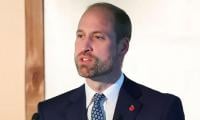DOHA: A tweet claiming to show the start of a coup in Qatar, with shaky footage of an illuminated window and crackling gunfire, spread quickly after being posted early last month.
It came from an account with a profile picture of the Saudi king but no followers. It has been viewed almost 300,000 times since May 4, with experts saying it was boosted by automated “zombie” accounts ahead of Friday’s third anniversary of a diplomatic feud between the Gulf neighbours. The cyber onslaught is the latest front in a dispute that erupted following an apparent hack of Qatar’s state news agency website in May 2017.
Back then, incendiary comments endorsing Islamist groups appeared, credited to Qatar’s ruler, Sheikh Tamim bin Hamad Al-Thani, alongside criticism of US President Donald Trump. Doha scrambled to deny the posts, insisting the site had been hacked, but regional media picked up the story and ran critical articles. The hashtag “cut relations with Qatar” began to trend on Twitter.
The following month, Saudi Arabia along with Bahrain, the United Arab Emirates and Egypt did cut ties, alleging Doha was too close to Iran and supported radical Islamist movements, and issued a raft of demands. Despite firm Qatari denials and promising signs of a breakthrough, including a round of shuttle diplomacy and the restoration of some sporting links, reconciliation efforts have ground to a stalemate.
In recent weeks, pro-Saudi Twitter accounts have been systematically spreading rumours of unrest in Qatar, AFP analysis of hundreds of tweets and twitter interactions shows. Many of the accounts amplifying the rumours had profile images of the Saudi leadership, mentioned them in their handles and retweeted or liked material featuring the royal family or gave their location as inside the kingdom.
Regional experts agree the facts indicate the campaigns originated from within Saudi Arabia, although observers differ on the extent of top-level involvement. Doha-based academic Marc Owen Jones, who has been studying anti-Qatar disinformation since before the regional isolation effort began in June 2017, puts the blame squarely at Riyadh’s door.
Many of the accounts involved in spreading the unrest rumours in May proclaimed ties to Saudi Arabia. “Anyone spreading this news is technically breaking Saudi law, it’s illegal to spread rumours,” Owen Jones of Qatar’s Hamad bin Khalifa University said. “In order to be high-profile and get away with it, then it has to have the tacit approval of the regime.”
Officials in Riyadh have not commented on the fake coup rumours. Saudi observers say the kingdom itself is a victim of fake news alleged to originate from Qatar and its allies Turkey and Iran. The UAE, Saudi’s principal ally, has also been the target of online disinformation campaigns, including one claiming Abu Dhabi’s Foreign Minister Abdullah bin Zayed had been assassinated, which Abu Dhabi blamed on Qatar.
Doha-based Al Jazeera has been repeatedly accused by critics of broadcasting anti-Riyadh propaganda to destabilise the Saudi regime. Doha has refused to shut it down. The initial coup claim in May was followed by tweets and news stories from pro-Saudi news sources that Qatari dissidents were openly challenging the regime. But they were based on falsehoods. “Hubbub on social media gives it the illusion that it’s a grassroots piece of campaigning, and then that’s picked up by the legacy media,” Jones said.
A Soyuz-2.1b rocket booster with a Fregat upper stage carrying satellites blasts off from its launchpad at the...
Swedish far-right activist Rasmus Paludan holding Holy Quran can be seen. — Reuters/FileSTOCKHOLM: A Swedish court...
Cows and buffaloes graze on fields on the banks of the polluted Yamuna river on a smoggy morning in New Delhi, India...
A collage of US Vice President Kamala Harris and former US president Donald Trump. — Reuters/FileWASHINGTON:...
A female voter cast her ballot during Michigan's early voting period on October 29, 2024 in Dearborn, Michigan. —...
A view shows "I voted" stickers at a PS in Nathan Straus Elementary School, on Election Day in Manhattan, New York...







